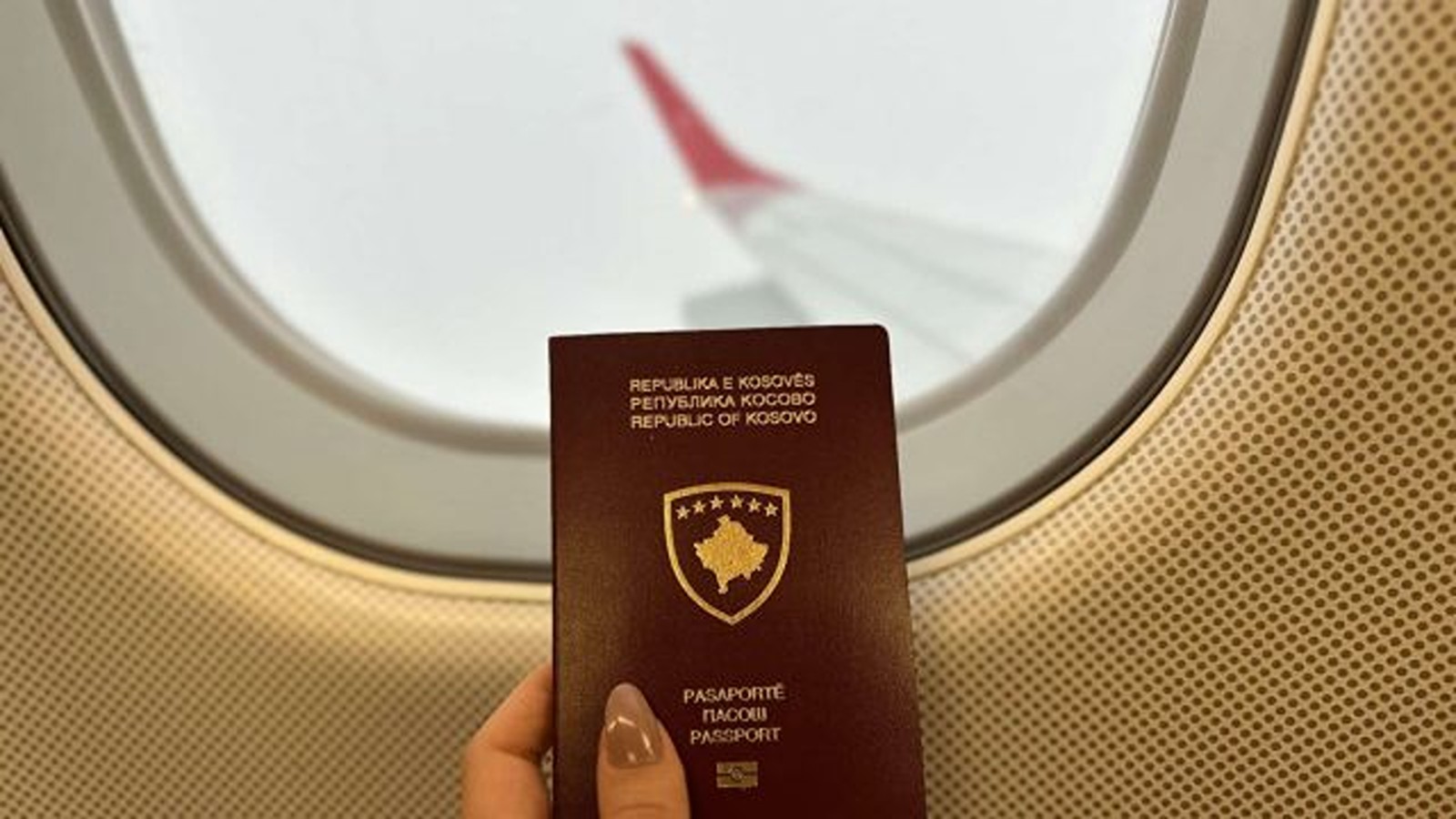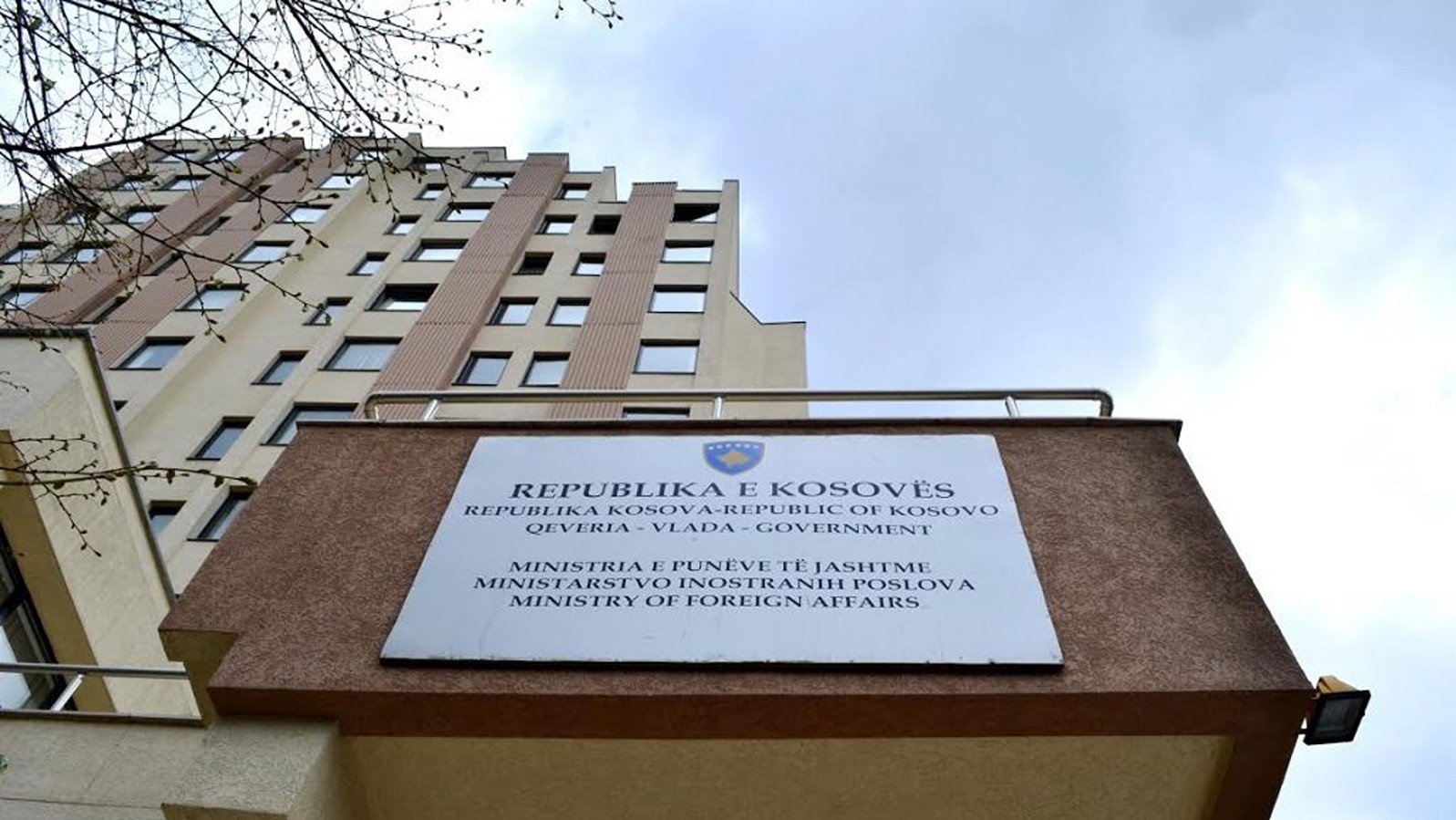Websites of Kosovo’s diplomatic mission continue having outdated information despite expectations of increase of visits after the visa-free regime entered into force.
Kosovo citizens travelling to Greece cannot find information about Kosovo’s diplomatic representation there in case of accidents, incidents, deaths, legal issues, or natural disasters.
Although Greece has not established diplomatic relations with Kosovo, Fitim Gllareva temporarily holds the temporary diplomatic position for Kosovo in Athens.
However, neither this name nor other information about the special mission exists on the Ministry of Foreign Affairs and Diaspora’s, MFAD, website.
The Kosovo Foreign Affairs Ministry is responsible for diplomatic missions in countries with which Kosovo has established diplomatic relations, such as embassies and consulates, and where Kosovo has established a special mission despite non recognition of its statehood.
Nonetheless, even after the ministry restructured its website last year by adding special sections such as embassies and digital portals for Kosovo’s missions worldwide, basic information is missing.
Similarly to the lack of information regarding Kosovo’s special office in Greece, two other Kosovo special offices abroad, in Vatican and Brussels, also do not have information about who the diplomatic representatives are, nor does a consulate in Poland.
Meanwhile, in three embassies, the names of ambassadors who are no longer part of the embassies still stand and the names of former consuls are still listed in six consulates.

Kosovo passport. Photo:BIRN
Diplomatic missions obliged to assist citizens in emergency situations
Since the visa-free regime for Kosovo passport holders came into force on January 1, the number of citizens travelling to the Schengen area has significantly increased, increasing also the need for more information about Kosovo’s representations in host countries, especially in cases of potential difficulties.
Kosovo’s diplomatic and consular services are expected to assist citizens facing challenges abroad, providing aid in legal matters, facilitating repatriation of the deceased, and safeguarding assets. However, with the expected rise of Kosovo citizens travelling abroad, concerns arise regarding the adaptability of these services to diverse scenarios.
A significant number of Kosovo’s diplomatic and consular missions do not offer updated information, which can cause difficulties. Based on data provided to BIRN by MFAD, excluding the Vatican and Greece, there are currently a total of 49 embassies, consulates, and special missions of Kosovo worldwide but there is inaccurate or not updated information in 13 of them.
There are a number of potential events that citizens of one country might need assistance abroad, such as in cases of arrests,detentions, or investigations. Kosovo’s missions abroad can also be contacted by their citizens in cases of natural disasters or high-risk incidents, but in these scenarios the responsibilities also often extend to other family members who share citizenship with the host country.
Informing the missions abroad allows citizens to seek the necessary assistance, including informing family members of the situation, connecting with a defence attorney, or appealing for intervention in cases of human rights violations.
In instances of death, the representations in host countries, according to current practices, do not cover the expenses for repatriating the deceased’s remains. Instead, they offer a list of funeral service agencies and approximate costs, assist in registering the death certificate, and provide the necessary documentation for the repatriation process.

Kosovo Ministry of Foreign Affairs and Diaspora in Prishtina. Photo: MFAD
Information that must be updated
Based on the data provided by the Kosovo Foreign Affairs Ministry and an analysis of the publicly available information on the official website, BIRN identified the following necessary changes:
The ambassadorial status in Austria is inaccurately attributed to former ambassador Lulzim Pllana on the ministry’s website, whereas Albinot Bimbashi is the interim minister-counsellor until the appointment of a new ambassador.
The same problem exists for the Embassy of Kosovo in Sofia, Bulgaria. The digital portal still shows data for former ambassador Delfin Pllana, although Haxhi Bajraktari has been the ambassador since he was appointed on October 13, 2023.
In the case of Poland, where Kosovo is working on establishing a diplomatic mission, there is no publicly available information regarding the first Chief of Mission of the Consulate General of Kosovo in Warsaw, Drilon Gashi, who was appointed last year.
There is also no updated information for the Vatican, the headquarters of the Roman Catholic Church and a city-state surrounded by Rome, Italy, despite Kosovo’s special mission represented by Vehbi Miftari having been established this year.
Bangladesh, although not yet part of the visa-free travel countries for Kosovo citizens, has seen a growing need for journalists to have more information about Kosovo’s representation there due to the increasing number of Bangladeshi citizens in Kosovo.The ministry’s website still shows the name of former ambassador Guner Ureya, who finished his mandate in December of last year.
Moreover, in some major cities with a significant Albanian population, Kosovo has established consulates in addition to embassies, however, six names remain not updated on the pages of some consular representatives, while one does not exist at all.
Germany, where according to the 2022 statistics by Prishtina based think tank GAP Institute, 542 thousand people of Kosovo descent live, leads with five consulates, of which four have general councils: In Hamburg, temporary advisor Saranda Osmani-Krasniqi is in charge, but no name is listed on the website. In Dusseldorf, advisor Mirsda Voca is in charge, not Arjan Kashtanjeva. In Stuttgart, the mission chief is Hamdi Bërvatovci, not Lumturie Lipoveci.





